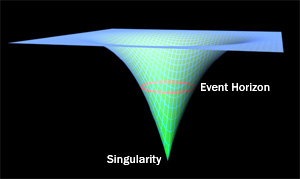
Today, I dumped some reflections on a
Facebook site that note some of my recent personal faith challenges. Most notably, I'm concerned about the character of God (Yahweh) in the Old Testament. Here is what I wrote:
"God afflicted Moses' sister with leprosy because she was jealous of said Cushite. God also turned Lot's wife into a pillar of salt because she got a little too curious about the fireworks happening behind her. Sure, she was 'disobedient' but the comparative morality of the situation in a larger context seems entirely disproportionate.
God also seemed to entertain Jephtha's foolish declaration to sacrifice as a burnt offering the first living thing to walk through his front door after his defeat of the Ammonites. How heartbroken was Jephtha when, upon his victorious return, his daughter greeted him at the front door (Judges 11)! Nevertheless, the great general cooked her, and apparently that's okay by God.
It would seem to me that God's moral character needs some vindication if the Old Testament stories are literally true: how wide is God's mercy if He's fine with accepting indecent sacrifices by blowhard, battle-ready, genocidal generals? And if it's all just allegorical, what moral decency can we gain from such a story?
Today I am heartbroken at the seeming depotism of the Old Testament stories. I'm also crushed to learn that archeological proofs show Yahweh as a local god of a small tribe of Israel, and that El was considered the god above Yahweh (who was simply a mountain god) [see Karen Armstrong, "The Great Transformation"]. If this is true, how much of what we believe is simply a tapestry of tangled tales, and primitive sophistications obfuscated by time, translative change-overs and blatant forgeries?"
I'll be honest and say that daring to ask the question, "what if I'm wrong?" leads to a frightening conclusion: you might just be. In my case, I'm beginning to wonder if I am. The
New Atheists are a good deal of stentorian emotionalism, and strident protestation written with the rhetorical flavour of witty academia. In the end, they are just as fundamentalist in their objections as the religious are in their assertions. They can balk all they like at that observation, but their books bear out the viability of my conclusion.
When we draw on historical research, however, we find a different landscape. Certainly religious historians like Armstrong are not without their biases, but a tad more creedence can be placed on their findings. And its these findings I find most disturbing. For example, the Old Testament god, Yahweh, seems to be an amalgamation of a localized mountain god, Yahweh, and the competing Jewish conception of god as El (crudely put, the Sky-god), who was, logically above the mountains, and therefore above Yahweh. Apparently Yahweh was portable, too. So, when they couldn't agree, Yahweh was moved around Israel in company of the
Axial peoples before eventually being combined with El. Thus a polytheistic notion of god became monotheistic, and Yahweh's name won the day.
And given that Yahweh was portable -- no longer just a mountain god, that is -- it seems a little more understandable that Jesus would quip that "if you have faith the size of a mustard seed, you can say to this mountain 'get up and move', and it will" (para. of Matt. 17:20). It also makes more sense now to echo with the Psalmist "I lift my eyes up to the mountains, where does my help come from?" (Psalm 121).
Given all of this, however, I am faced with the question, "are my beliefs in the literal, historical Judeo-Christian faith wrong?"
My answer: I don't know. I'm declaring a temporary
epistemological agnosticism on this issue. I need to research, learn, and reassess. For now, I'm wondering if
Tom Harpur is right when he declares that Christ is a spiritual consciousness all humans have by virtue of the indwelling of God in all of us (see
The Pagan Christ). This conclusion, while poking at the fringes of so-called
gnosticism, rings consonant with the notion of
imago dei. But is a purely spiritualized version of religion right? Admittedly, if I took on that perspective, I'd still have to visit the question, "what if I'm wrong?"
I don't know if I'm ready for what that might imply.










